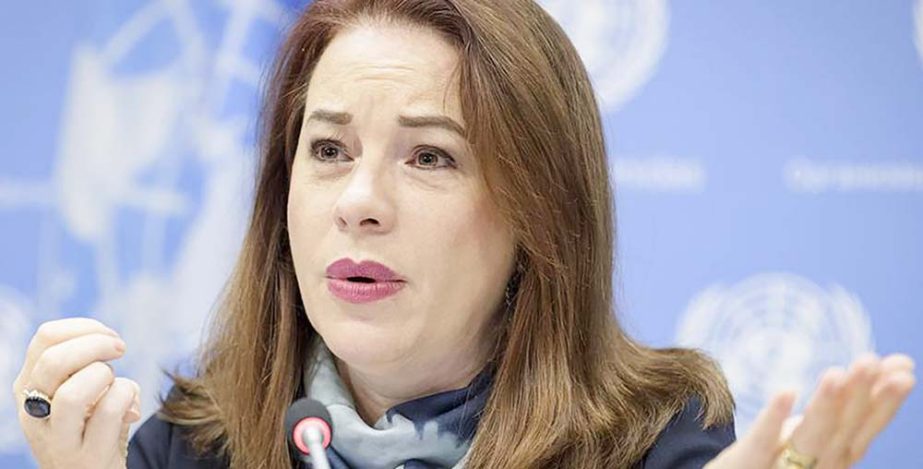
PTI, United Nations :
The slow-moving UN Security Council reform is a “very divisive” and “contentious” issue and all the member States have to walk the extra mile as they work on divergences and commonalities to ensure the process does not become a “zero sum game”, General Assembly President Maria Fernanda Espinosa has said.
India has been at the forefront of efforts at the UN to push for an urgent long-pending reform of the Security Council, emphasising that it rightly deserves a place at the UN high table as a permanent member.
The Security Council reform “is very much a member State driven process. My role as President is to accompany, to lead, to make sure that the process continues, to make sure that it is inclusive and that it is transparent,” Ms Espinosa said at a press briefing on Friday.
She was responding to a question by PTI on the long-pending reform of the powerful 15-nation UN organ, with little progress 10 years after the Inter-Governmental Negotiations (IGN) began.
“It is not an easy issue. I want to be very open and frank with you. It is very divisive, it is contentious,” she said.
Ms Espinosa had appointed Ambassador and Permanent Representative of Luxembourg to the UN Christian Braun and Permanent Representative of the United Arab Emirates to the UN Lana Nusseibeh as Co-Chairs of the Intergovernmental Negotiations on UN Security Council reform.
She described the two co-chairs as “excellent” and lauded them for putting a lot of effort and working, engaging with all member States in “trying to pull together the different positions, trying to look at the commonalities to see how we can tackle the issue in order to avoid the zero sum game”.
In January this year, India’s Permanent Representative to the UN Ambassador Syed Akbaruddin said at an informal meeting of the Plenary on the Intergovernmental negotiations on the question of increase in the membership of the Security Council that no process known to UN members had traversed “winding pathways” in the manner as the Security Council reform process had.
“In terms of length, it is unparalleled. In terms of inertia too, it has no peer,” Mr Akbaruddin had said, noting that it has been an “arduous journey” given that it has been more than 10 years since the start of the IGN process in 2008.
Ms Espinosa acknowledged that people were getting “impatient” after 10 years of the IGN but said “this is the process we have and I think that we have to make sure that the process continues, that all member States engage and we pull a little bit, we push and push and walk the extra mile”.

